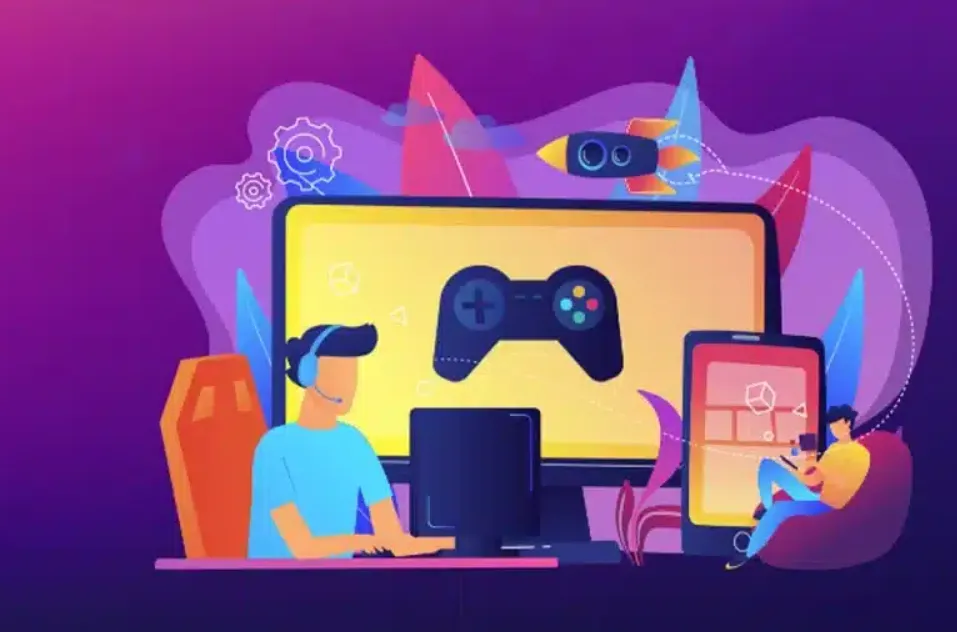Online slot has revolutionized the way we play and interact with games. From humble beginnings to a global phenomenon, the journey of online gaming reflects advancements in technology, shifts in social dynamics, and the growing popularity of interactive entertainment.
Early Days of Online Gaming
The concept of online gaming can be traced back to the 1970s, with the development of early networked games. One of the first was “Spacewar!”, created by Steve Russell and his team at MIT. This game, while not online in the modern sense, laid the groundwork for multiplayer gaming by allowing two players to compete against each other.
The Rise of Multiplayer Experiences
The 1980s and 1990s saw significant developments in online gaming, with the introduction of more sophisticated multiplayer experiences. Games like “MUD” (Multi-User Dungeon) and “DOOM” offered players the chance to connect and compete via dial-up modems. These early multiplayer games were revolutionary, allowing gamers to experience competition and cooperation in ways that had never been possible before.
The Advent of MMOs
The late 1990s and early 2000s brought the advent of massively multiplayer online games (MMOs). Titles such as “EverQuest” and “World of Warcraft” defined this era, offering expansive virtual worlds where players could interact with thousands of others. These games introduced complex in-game economies, intricate social systems, and vast landscapes, setting a new standard for online gaming.
The Mobile Gaming Revolution
As technology advanced, so did the platforms for online gaming. The rise of smartphones and tablets in the late 2000s led to a new wave of mobile gaming. Games like “Angry Birds” and “Candy Crush Saga” demonstrated the potential of mobile devices for gaming, reaching a broader audience and introducing a new form of casual gaming.
The Growth of eSports
The 2010s marked the rise of eSports, where competitive gaming became a professional sport. Games such as “League of Legends,” “Dota 2,” and “Counter-Strike: Global Offensive” became staples of the eSports scene, with tournaments offering substantial prize pools and attracting millions of viewers. eSports has transformed online gaming from a hobby into a legitimate career path for many players.
Streaming and Content Creation
Streaming platforms like Twitch and YouTube Gaming have played a crucial role in the evolution of online gaming. These platforms allow gamers to broadcast their gameplay live, interact with viewers, and build communities around their content. Streamers and content creators have become influential figures in the gaming world, shaping trends and influencing game development.
The Role of Virtual Reality
Virtual reality (VR) is another exciting development in the realm of online gaming. VR games offer immersive experiences by placing players in fully realized 3D environments. Titles like “Beat Saber” and “Half-Life: Alyx” showcase the potential of VR to create new and engaging gaming experiences, pushing the boundaries of what is possible in online gaming.
The Future of Online Gaming
Looking ahead, online gaming is poised to continue evolving with advancements in technology. Innovations in artificial intelligence, cloud gaming, and augmented reality are likely to shape the future of gaming. AI could enhance game design and create more dynamic and responsive environments, while cloud gaming could make high-quality games accessible to a wider audience without the need for powerful hardware.
The Social Impact of Online Gaming
Online gaming has had a significant impact on social interactions. It has created global communities where players can connect with others who share their interests. Gaming communities often form strong bonds, and multiplayer games can foster teamwork and collaboration. However, there are also concerns about online harassment and the potential for addiction, highlighting the need for responsible gaming practices.
Economic Impact of Online Gaming
The economic impact of online gaming is substantial. The industry generates billions of dollars in revenue annually, driven by game sales, in-game purchases, and advertising. The success of online gaming has also led to the growth of related sectors, including game development, streaming services, and eSports.
The Cultural Influence of Online Gaming
Online gaming has influenced popular culture in numerous ways. Game franchises like “Pokémon,” “Mario,” and “Fortnite” have become cultural icons, appearing in various forms of media and merchandise. Gaming has also inspired movies, TV shows, and music, reflecting its growing significance in global culture.
Challenges and Opportunities
Despite its growth, online gaming faces challenges such as cybersecurity threats and issues related to player safety. Addressing these concerns is crucial for maintaining a positive and secure gaming environment. Additionally, there are opportunities for innovation and growth, particularly in areas like cross-platform play and accessibility.
Conclusion
Online gaming has come a long way since its inception, evolving from simple networked games to a multifaceted industry with a global impact. As technology continues to advance, the future of online mahjong ways 2 promises even more exciting developments and opportunities. Whether through competitive eSports, immersive VR experiences, or social gaming communities, online gaming is set to remain a significant and dynamic part of the entertainment landscape.
